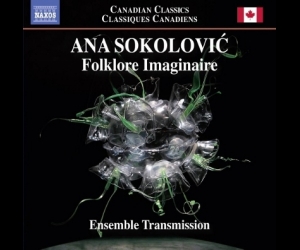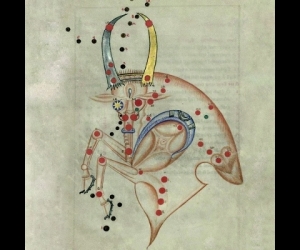
To Cry Out in the Wilderness documents a striking new collaboration in Canadian music: Scions, which convenes members of the choral drone group Joyful Joyful, the minimalist chamber jazz ensemble New Hermitage, double bassist Gabriella Ciurcovich, and composer Michael Cloud Duguay. Scions’ bold debut recording evokes the ethics of resilience amid bleak ecological ruin. The opener, “Moss Lung,” has a discordant, breathy texture that augurs a sense of uncertainty. On the next track, “Even When All Was Silent I Was Not Alone,” Andrew MacKelvie’s saxophone emerges from the fog, clearing space for a tectonic crescendo of droning instruments; as the song reaches its apex, vocalist Cormac Culkeen stretches the words “I was not alone” into a powerful gust of feeling. These opening pieces, a diptych of sorts, lay out the essential materials of the album: Culkeen’s vocals, almost always multitracked, rise from Scions’ marvellous, uneasy soundscapes with an assured clarity and a devotion to the collective.
Where others might risk a reductive message of resilience in the face of devastation as an end in itself, the sonic experiments of To Cry Out in the Wilderness offer a different suggestion. As Culkeen sings on “Fight Song,” “Why should we tremble at the blade / If the axe must be disobeyed?” Here, then, is the true spirit of this record: It performs a faith in newness and togetherness, turning away from the blade of convention to sound the avant-garde edge of an alternative future.


